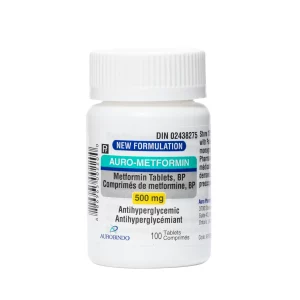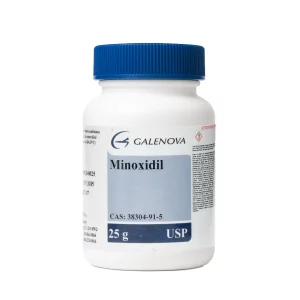Your cart is empty.
Your cart is empty.
Viagra, or sildenafil, is primarily known for treating erectile dysfunction but was initially investigated for high blood pressure and angina. While it didn’t succeed as an angina treatment, its effects on blood circulation led to its use for erectile function.
Now, researchers are revisiting Viagra’s potential benefits for heart health and longevity and exploring connections like Viagra and Alzheimer’s, as well as Viagra and insulin regulation. This article reviews the latest findings and their implications for health-conscious individuals looking to enhance vitality and aging. For those considering options, information on how to purchase Viagra should always be discussed with a healthcare professional. Remember, this research is ongoing, and the information provided is for educational purposes, not medical advice or recommendations for unapproved uses of Viagra.
The renewed interest in sildenafil’s cardiac effects stems from its origins. Initially synthesized by Pfizer in the late 1980s as a treatment for hypertension and angina, Viagra works by promoting vasodilation, which widens blood vessels. As a phosphodiesterase type 5 (PDE5) inhibitor, it relaxes smooth muscle cells, increasing blood flow and potentially lowering blood pressure.
While its primary use is for erectile dysfunction, Viagra also affects blood vessels in the heart and lungs. This ability to enhance blood flow has led researchers to investigate its potential cardiovascular benefits beyond its original uses.
Research on Viagra’s effects on cardiovascular health has been expanding, revealing several significant findings from observational studies and controlled trials. Notably, studies show that men using Viagra for erectile dysfunction have lower rates of heart disease, including reduced heart attack risk and lower mortality rates.
A key study published in the Journal of Sexual Medicine found that users of PDE5 inhibitors, like Viagra, faced significantly lower risks of mortality and major cardiovascular events. More recent research from 2024 continues to support these findings, suggesting long-term sildenafil use may lower heart failure risks and improve survival rates in specific male populations.
Additionally, studies have shown that Viagra can enhance endothelial function, improving blood vessel health and circulation, which benefits overall organ and tissue health, not just erectile function.
Viagra, as a PDE5 inhibitor, blocks the enzyme that breaks down cyclic guanosine monophosphate (cGMP), increasing its levels. Higher cGMP promotes relaxation and widening of blood vessels (vasodilation), offering benefits for cardiovascular health, including:

Research on PDE5 inhibitors like Viagra suggests potential cardiovascular benefits, particularly for men with existing risk factors such as coronary artery disease or type 2 diabetes. Most studies showing positive effects involved men using these medications for erectile dysfunction or pulmonary hypertension under medical supervision. However, major cardiology organizations do not recommend PDE5 inhibitors for the primary prevention of heart disease, even in those with existing conditions and no erectile dysfunction. The benefits noted are considered secondary findings.
The FDA or EMA does not approve Viagra (sildenafil) for treating general cardiovascular diseases like coronary artery disease or heart failure; it’s only approved for pulmonary arterial hypertension under the name Revatio. While emerging research is promising, using Viagra for heart health is considered “off-label,” meaning it’s prescribed for unapproved conditions based on a doctor’s judgment. Robust clinical trials must confirm their efficacy and safety for broader cardiovascular applications before they can become a standard treatment.

Given the research headlines and the positive tone of some findings, it might be tempting to consider Viagra as a potential aid for heart health. However, this path requires extreme caution and should only be navigated with expert medical guidance.
These findings in the context of longevity medicine highlight the importance of cardiovascular health for healthy aging. The circulatory system delivers essential nutrients and removes waste. If further research confirms that medications like sildenafil support vascular health, the benefits could extend beyond heart attack prevention to improved blood flow and healthier blood vessels.
Intriguingly, a medication initially studied for circulation could enhance vascular integrity as we age. However, medications are just one aspect of a long-term wellness strategy.
A heart-healthy lifestyle, including a balanced diet, regular exercise, stress management, sufficient sleep, and avoiding smoking, is crucial for longevity. If sildenafil’s cardiovascular benefits are confirmed, it would complement these foundational elements. Ongoing research highlights science’s capacity to reveal new uses for existing medications, potentially benefiting erectile function and heart health.
Some studies suggest that men using Viagra (sildenafil) for erectile dysfunction may have a lower risk of heart problems and potentially a longer life expectancy, likely due to improved blood flow.
Viagra may cause a mild to moderate temporary decrease in blood pressure by relaxing blood vessels, but it is not approved for treating high blood pressure. Doctors take its effects on blood pressure into account, especially for men with heart conditions or those on blood pressure medications.
Viagra is not FDA-approved for most cardiovascular conditions, like coronary artery disease and heart failure. However, Revatio, another formulation of sildenafil, is approved for pulmonary arterial hypertension.
Viagra is a prescription medication for erectile dysfunction and should only be used under medical supervision. Using it without a doctor’s oversight for unproven benefits, such as heart health, is not advised and can be risky.
Viagra carries risks, primarily if used without medical guidance or for non-approved purposes. It can cause side effects and dangerously interact with nitrates, leading to severe blood pressure drops. Those with heart conditions should get approval from their cardiologist before using it. Always consult a doctor first.


Acarbose blocks carbohydrate breakdown in the small intestine, preventing rapid glucose absorption spikes.

Dasatinib eliminates senescent cells through selective apoptosis, clearing age-damaged tissues from the body.

Metformin inhibits hepatic glucose production while enhancing insulin sensitivity, offering cost-effective Type 2 diabetes management.

Minoxidil dilates scalp blood vessels, increasing nutrient delivery to hair follicles while extending the anagen growth phase duration.
Unlock savings on bundles and elevate your online experience today!